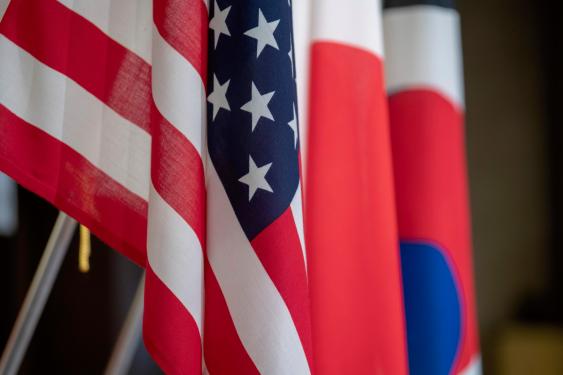U.S. President Donald Trump arrived in Asia this week on a mission that extended beyond diplomacy to include signing agreements poised to influence the next phase of the global technology competition. The United States formalized Technology Prosperity Deals with Japan and South Korea, focusing on accelerating collaboration in critical fields such as artificial intelligence, semiconductors, quantum computing, biotechnology, space exploration, and 6G networks.
These agreements are designed to enhance cooperation, fortify strategic relationships, align regulatory frameworks, and support shared economic and national security goals. This move comes approximately one month after the U.S. deepened its technology ties with the United Kingdom.
Through these partnerships, the United States aims to leverage the distinct expertise of each nation. Japan is recognized for its leadership in advanced materials, robotics, and space technologies, while South Korea is a global powerhouse in memory chip production.
The U.S.-Japan agreement specifically seeks to increase AI exports, strengthen technology protections, and refocus collaborative efforts on AI standards and innovation. Simultaneously, the deal with South Korea will work to reduce operational burdens for technology companies, with a particular focus on eliminating barriers related to innovative data localization and hosting architectures.
According to a White House press release, Japan and the U.S. plan to advance pro-innovation AI policy frameworks. This effort is intended to support a U.S. and Japan-led AI ecosystem and promote exports across the full spectrum of AI infrastructure, hardware, models, software, applications, and related standards.
The U.S.-Korea Technology Prosperity Deal will advance American interests through coordinated AI exports with the Republic of Korea. It will also strengthen both countries’ export controls and enforcement, while refocusing the partnership between the U.S. Center for AI Standards and Innovation and the Korea AI Safety Institute on metrology and standards innovation.
A broader objective of these deals is to reduce dependence on China’s technology supply chain and to help shape the international rules governing emerging technologies like AI and quantum computing.
For the technology industry, these agreements signal that allied markets should be watched closely, as this collaboration is likely to create new opportunities for both startups and established technology firms. With the United States, Japan, and South Korea aligning their technology strategies, future breakthroughs in AI, semiconductors, quantum computing, space, and 6G may not only originate from individual laboratories but also from these strategic partnerships designed to maintain a competitive edge in the global technology race.

